| | The US shutdown ends but leaves Trump with a dilemma, the EU launches a probe into Google, and Waymo͏ ͏ ͏ ͏ ͏ ͏ |
| |   Tokyo Tokyo |   Libreville Libreville |   Buenos Aires Buenos Aires |
 | Flagship |  |
| |
|
The World Today | 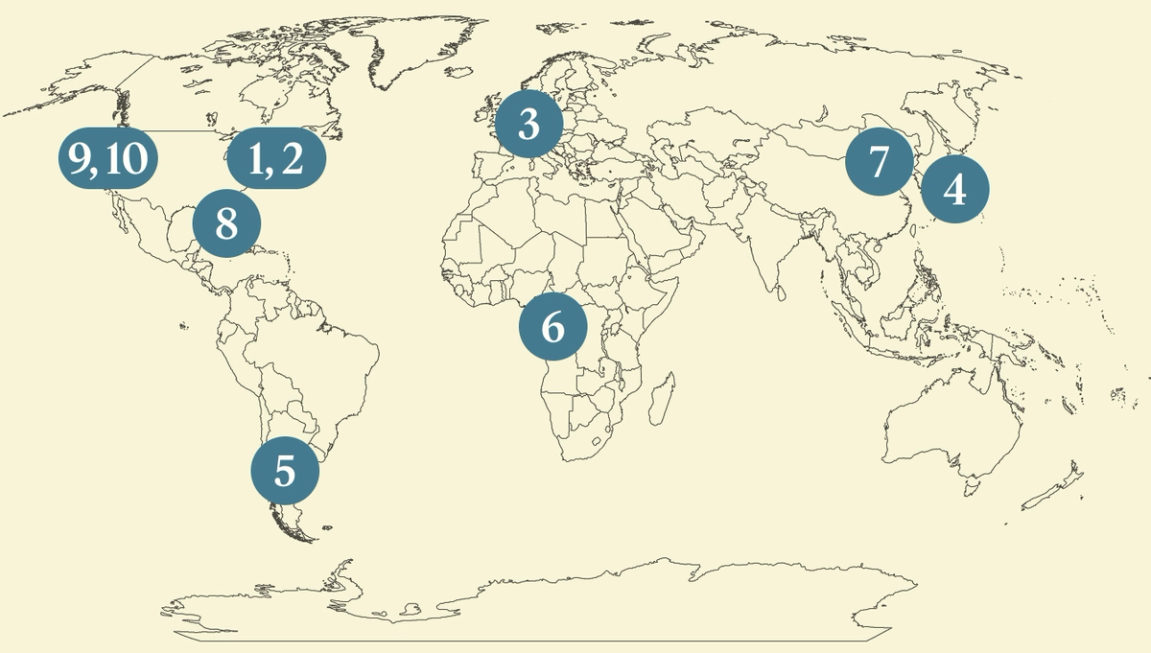 - US shutdown ends
- Congress Epstein file vote
- EU readies Google probe
- Japan, China in Taiwan row
- Argentina inflation slows
- New malaria treatments
- ‘No peak’ for emissions
- Solar flare delays launch
- Waymo heads for highways
- AI Godfather breaks record
 A much-loved ballet returns to London. |
|
Trump’s post-shutdown fallout |
|
US Congress to vote on Epstein files |
 US House speaker Mike Johnson. Al Drago/Reuters US House speaker Mike Johnson. Al Drago/ReutersThe US Congress will vote next week on whether to release more files related to the sex offender Jeffrey Epstein. All 214 Democratic representatives were joined by four Republicans in signing a petition over the issue, and the speaker must now bring the measure to the floor. Washington is already in turmoil over the Epstein files after Democrats in the House of Representatives this week released thousands of emails in which Epstein repeatedly mentioned President Donald Trump. The broader files contain more than 33,000 pages amassed in a federal investigation; Trump has called them a “hoax.” Congressional Republicans are under pressure from their base, and the vote will force them to go on record supporting or blocking their release. |
|
EU to probe Google over news search |
|
Japan PM inflames China over Taiwan |
 Yonhap via Reuters Yonhap via ReutersTensions surged between Beijing and Tokyo over China’s aggressive response to remarks by Japan’s new prime minister suggesting she could deploy military force to defend Taiwan. Beijing regards the island as a renegade province, but Tokyo sees it as critical to maintaining freedom of movement for Japan’s maritime fleet. The remarks by Japan’s leader drew huge backlash from Chinese officials: One diplomat stationed in Osaka appeared to threaten to behead the Japanese premier, a prominent propagandist called her “an evil witch,” and a state broadcaster said she must “pay a price.” China’s and Japan’s leaders appeared to have cordial talks at a recent summit, an apparent honeymoon period that is evidently now imperilled. |
|
Argentina inflation slows again |
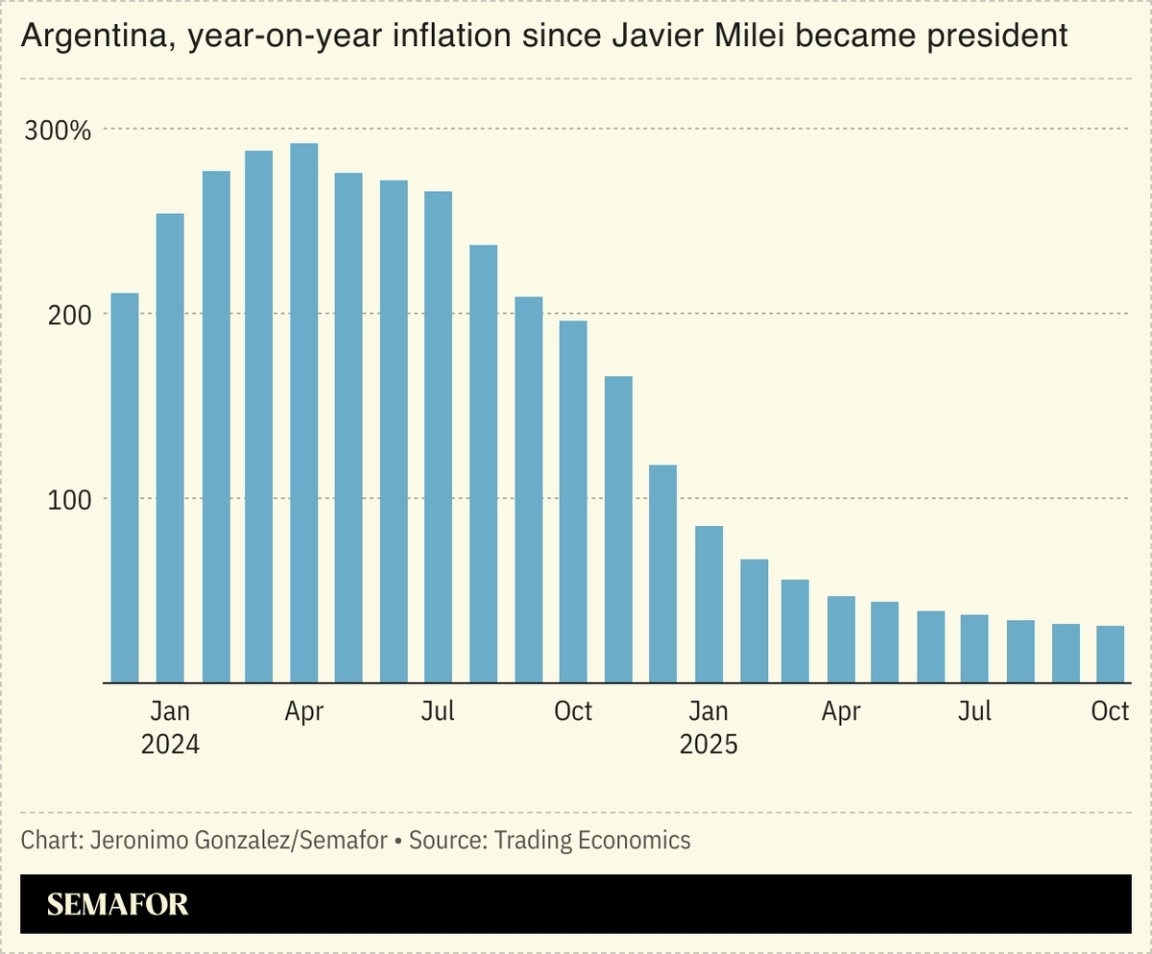 Argentina’s annual inflation rate fell for the 18th straight month, reaching its lowest level in more than seven years. While the 31.8% rate is still among the world’s highest, the new data represents vindication for Argentina’s President Javier Milei, who inherited inflation above 200%. In more good news for Milei, the US reportedly drew nearly $1 billion of its International Monetary Fund reserves to help Argentina make a critical debt payment, a sign of Buenos Aires’ deepening ties to the world’s biggest economy. Investors will be hoping that Milei’s recent legislative election win will lead to greater growth: Economic activity has cooled sharply in recent months. |
|
Promising new malaria treatments |
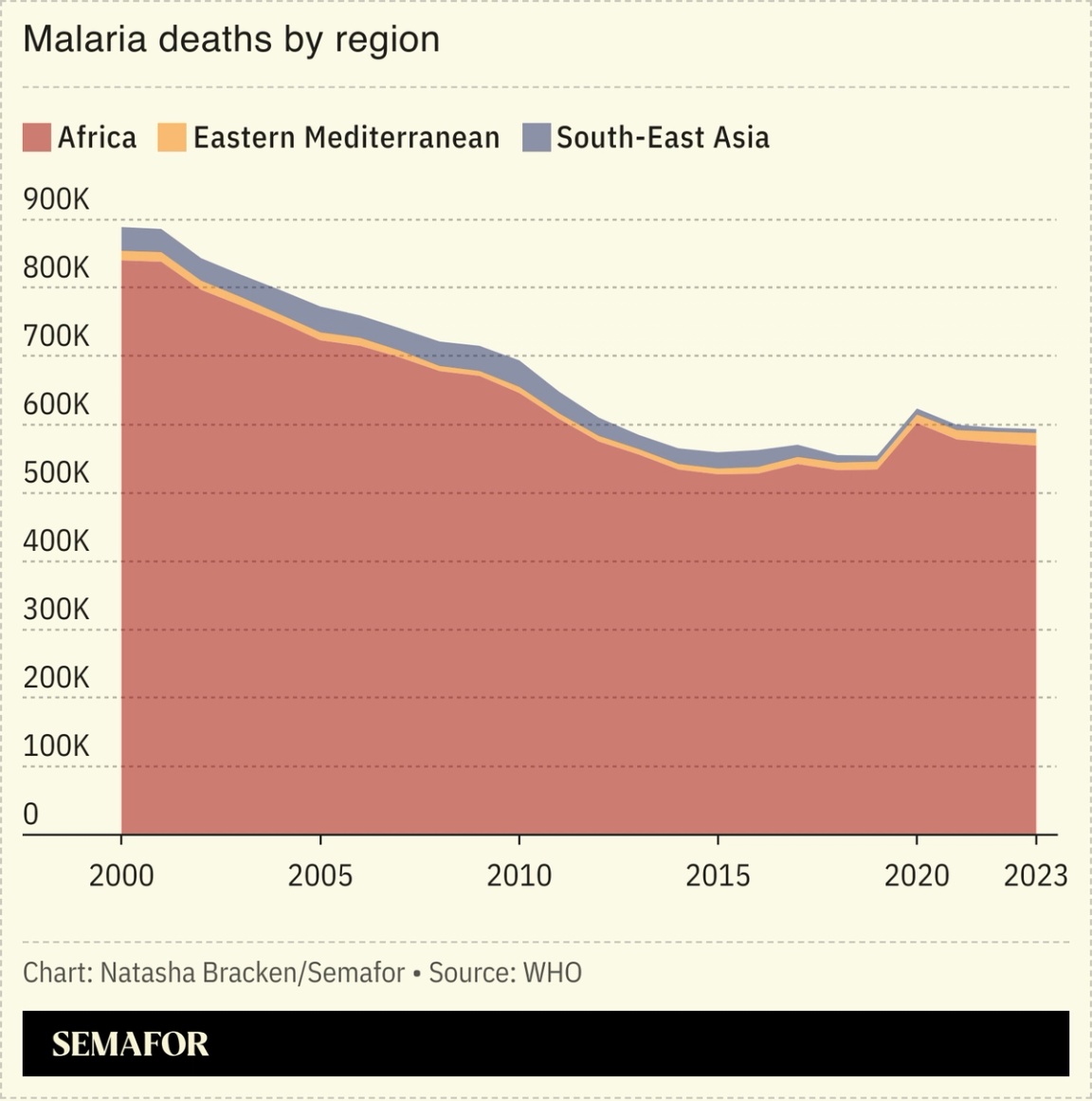 Scientists have unveiled two new treatments to help combat malaria’s growing resistance to existing drugs, a promising advance in fighting the deadly disease. Swiss drugmaker Novartis said a trial of its next-generation treatment in 12 African countries had performed well, though the drug is a year away from being publicly available. Researchers in Gabon, meanwhile, said a single-dose mixture of four anti-malarial medications led to 93% of patients being parasite-free within 28 days. More than 600,000 people — mostly children — die from malaria every year, with 95% of those deaths occurring in Africa. Besides averting hundreds of thousands of fatalities, reducing malaria by 90% in the continent could boost its GDP by $16 billion a year, the World Health Organization said. |
|
‘No clear peak’ for global emissions |
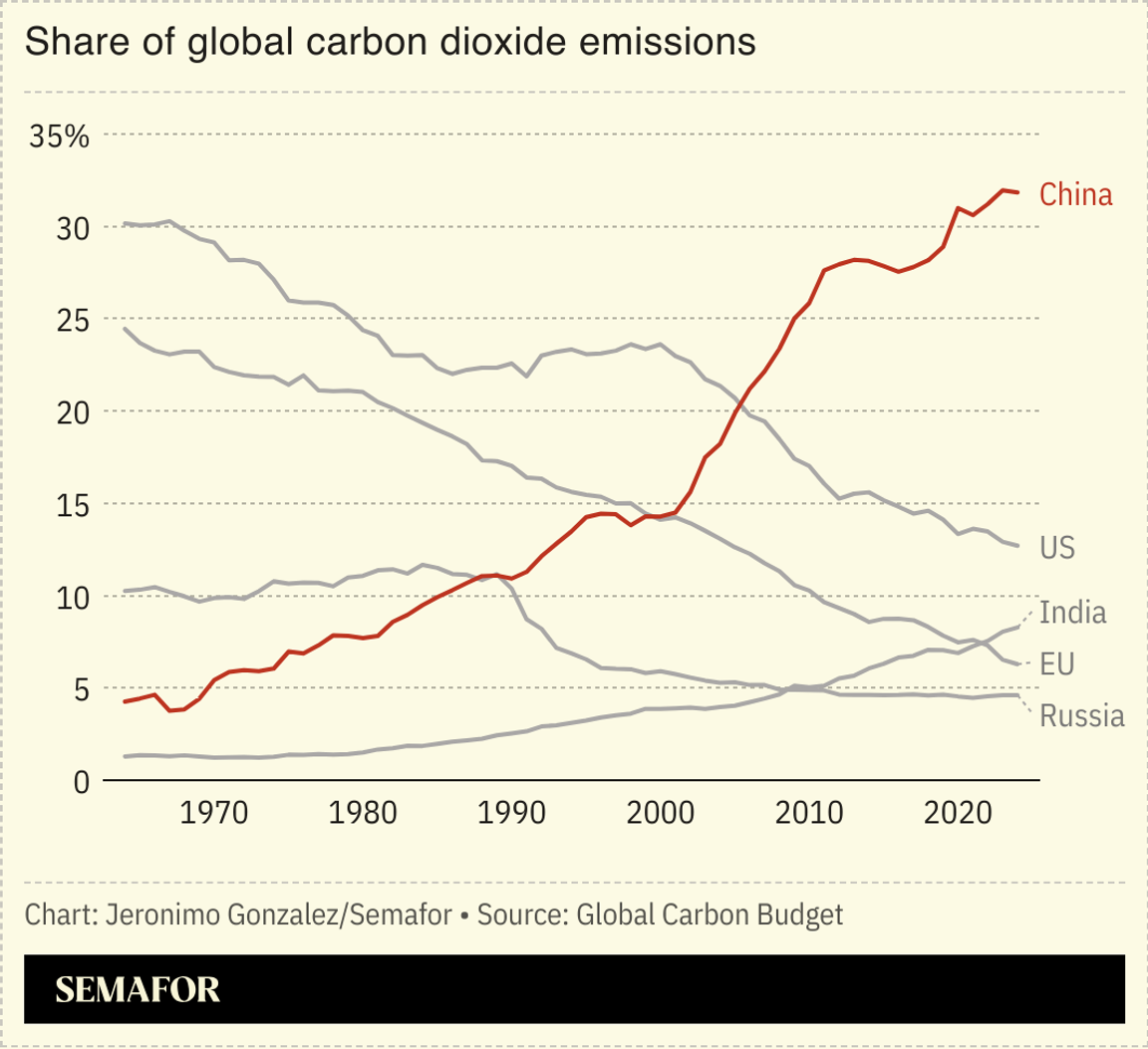 Global fossil fuel emissions show no sign of slowing, with a new report suggesting they are on track to surpass records this year. Despite signs of CO₂ output slowing in Europe and China, an increase in oil and gas production, led by the US, has boosted global emissions, with a Global Carbon Project report showing they’re on track to be more than 1% higher than last year’s record. The figures come as global leaders are meeting in Brazil for COP30, the world’s most important environmental gathering. However, the lack of US presence and the diminished interest of private capital augurs negatively for the climate agenda. “There is no clear peak” on the horizon for emissions, one expert told The New York Times. |
|
Solar storm delays Blue Origin launch |
 Joe Skipper/File Photo/Reuters Joe Skipper/File Photo/ReutersA gigantic solar storm delayed the launch of Blue Origin’s New Glenn rocket, and sparked fears of wider damage to satellites and electronic networks. The Jeff Bezos-backed space company hoped to demonstrate a reusable booster on its so-called heavy lift rocket, as part of a mission to help two NASA spacecraft set off for Mars. The solar storm has triggered spectacular auroras as far south as Florida, and fueled concerns about broader destruction; several Starlink satellites were destroyed in a 2022 storm. Space weather remains a danger to the space industry, just as actual weather was a danger for oceanic shipping in bygone centuries. But the risks are worth taking: Cape Canaveral just yesterday broke its own record for the number of space launches in a year, with six weeks of 2025 still to go. |
|
Waymo ventures onto US highways |
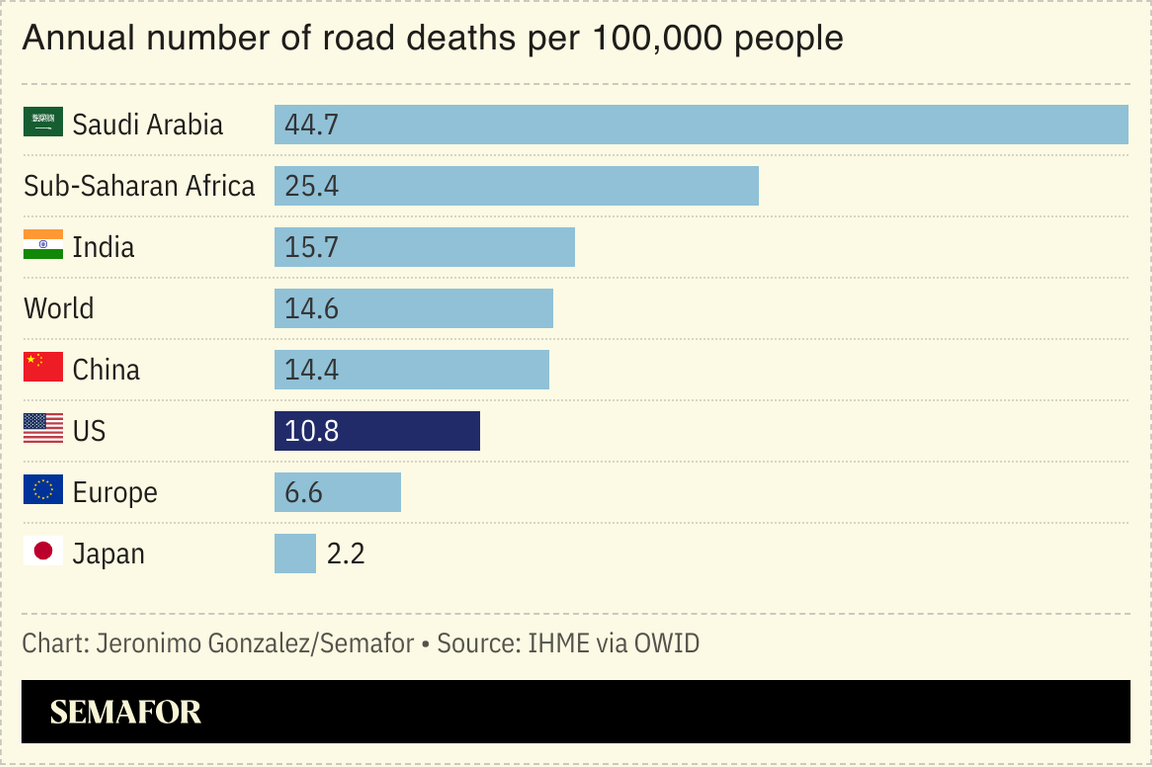 Waymo’s self-driving cars can now operate on highways in three US cities. The Alphabet-owned company has so far only rolled out its services on inner-city streets where it operates, which slows journeys: The freeway option could halve the time of some trips. Highways are, perhaps counterintuitively, easier for AI than streets, with clear signs and lanes, but have higher stakes, with accidents more likely to be deadly. Waymo is the clear US leader in the sector: Its 2,000 vehicles have logged over 100 million driver-free miles, and it says they cause 91% fewer serious injuries than human drivers, though it faces stiff competition abroad from Chinese autonomous driving firms like Baidu and WeRide. |
|
|